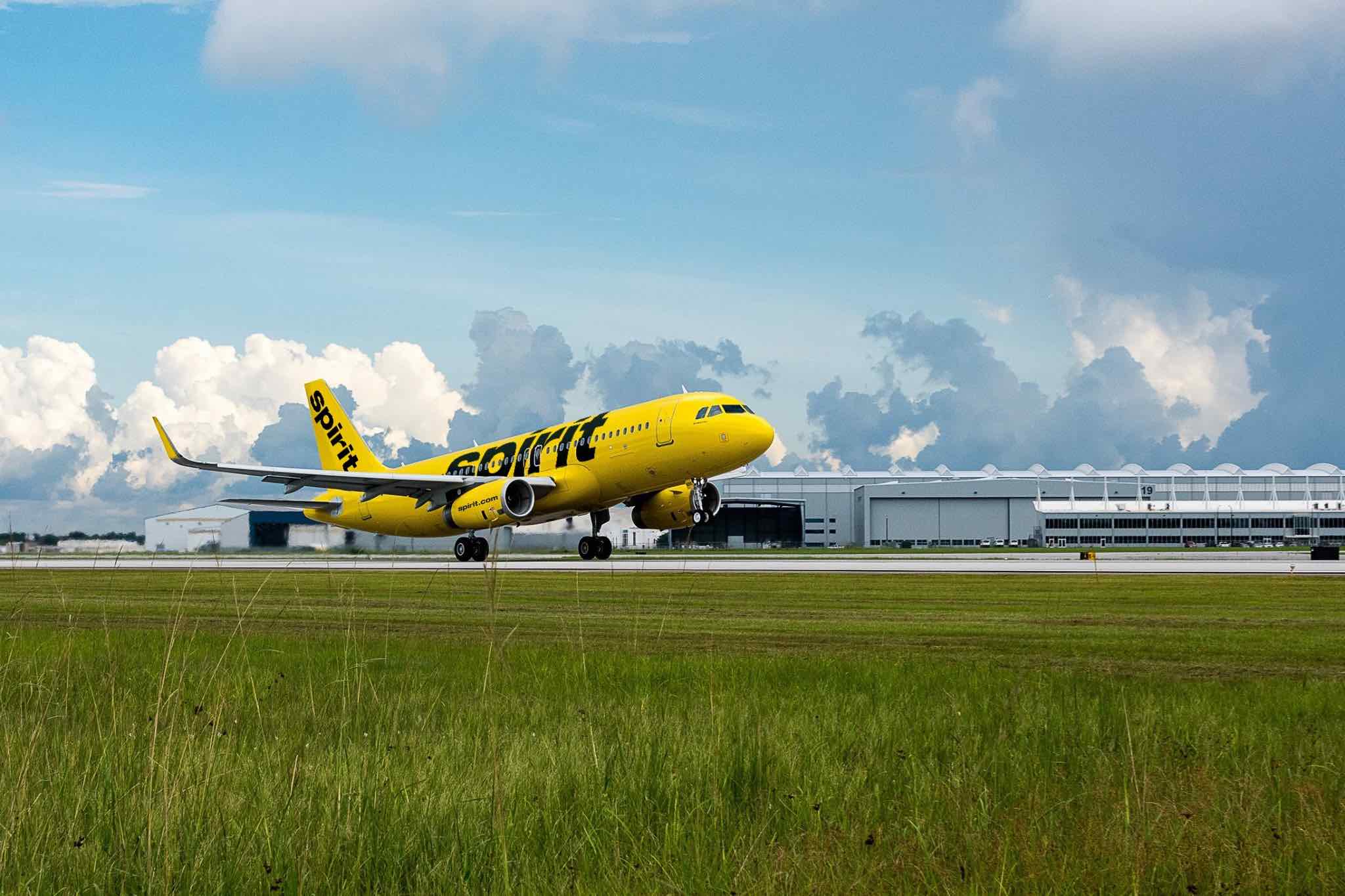
The Wall Street Journal reports that Spirit Airlines is talking to its creditors about a strategic bankruptcy filing as the beleaguered budget carrier struggles to find profitability after its merger with JetBlue was blocked. With Spirit already massively scaling back its winter schedule and now considering bankruptcy, I blame Judge William Young for his foolish and shoddy legal reasoning.
Spirit Airlines Discusses Bankruptcy Terms With Its Creditors
Having reported no profit since before the pandemic, Spirit Airlines has been evaluating a Chapter 11 restructuring versus an out-of-court transaction. Its problem is not just declining revenue, but servicing of its USD 3.3 billion in debt, about a third of which will be due within a year. It also must refinance or extend the notes of its credit card processor within three weeks.
In August, Spirit Airlines CEO Ted Christie refused to answer any questions over this:
“Because those conversations are ongoing, we are not going to go into detail or take any questions on this topic or speculate on potential outcomes. Needless to say, it is a priority and we are focused on securing the best outcome for the business as quickly as possible.”
But it was clear to most behind the scenes that Spirit was exploring that option.
On the consumer side, Spirit Airlines is slashing its schedule, with many route cuts and an overall reduction of flying by 20% in November and December compared to 2023.
And for all this, I blame US District Judge Wiliam Young.
Why Do I Blame Judge Young For Spirit’s Mess?
In January, Judge Young held that the JetBlue-Spirit merger could not proceed because it violated the Clayton Act. The heart of his ruling:
While it is understandable that JetBlue seeks inorganic growth through acquisition of aircraft that would eliminate one of its primary competitors, the proposed acquisition, in this Court’s attempt to predict the future in murky times, does violence to the core principle of antitrust law: to protect the United States’ markets –- and its market participants — from anticompetitive harm.
The Clayton Antitrust Act of 1914 was meant to curb mergers and acquisitions that tended to create monopolies to the detriment of US consumers. Specifically, §7 of the Act prohibits mergers when “the effect of such acquisition may be substantially to lessen competition, or to tend to create a monopoly.”
Seizing on this, Judge Young pointed to specific anecdotes, like “a college student in Boston hoping to visit her parents in San Juan or a large Boston family planning a vacation to Miami that can only afford the trip at Spirit’s prices” to argue, “It is this large category consumers, those who must rely on Spirit, that this merger would harm.”
The close of his opinion reads like the pronouncement of a politician, not a neutral arbiter of the law:
Spirit is a small airline.
But there are those who love it.
To those dedicated customers of Spirit, this one’s for you.
Why?
Because the Clayton Act, a 109-year-old statute requires this result –- a statute that continues to deliver for the American people.
The problem is that “love” for Spirit Airlines should not govern whether a merger between JetBlue and Spirit should proceed. Nor should it matter whether customers currently rely on Spirit Airlines for transport, especially when the company is losing millions of dollars, suggesting a business model that is broken.
The key word here is substantial. Would there be a “substantial lessening of competition” because of this merger? I don’t see this proven by the US Government or its expert witnesses. Rather, I see such forecasts as inconclusive and therefore unpersuasive. There remains tremendous competition in the US airline industry. This is not like the only two market entrants are merging into one: there remains robust competition and the idea that a larger JetBlue could challenge American, Delta, United, and Southwest was glossed over by Judge Young.
Ultimately, The Clayton Act is not about maintaining cheap and unsustainable pricing, but about protecting consumers from the nefarious effects of collusion aimed at undercutting the market system. Judge Young got it wrong.
And now we see the fruit of his poor legal analysis: a JetBlue struggling to survive and Spirit Airlines struggling to survive. I’m not personally in favor of any merger, generally…I like the status quo and I like as much competition as possible. But it became clear to me that Spirit and JetBlue were better together. Sure, the Spirit and JetBlue business models were very different in many ways, but the aircraft overlap and the need to create a larger competitor to the entrenched legacy network carriers would have ultimately served consumers a lot more.
While Spirit Airlines is certainly not going out of business, it is shrinking and so is JetBlue. The result for consumers is the same: they pay more to get where they need to go (indeed, Untied CEO Scott Kitby is gleeful about this).
The federal government and Judge Young not only made a bad situation worse, but poorly analyzed the facts and misapplied the law. As Spirit Airlines inches closer to bankruptcy, you have them to thank.

